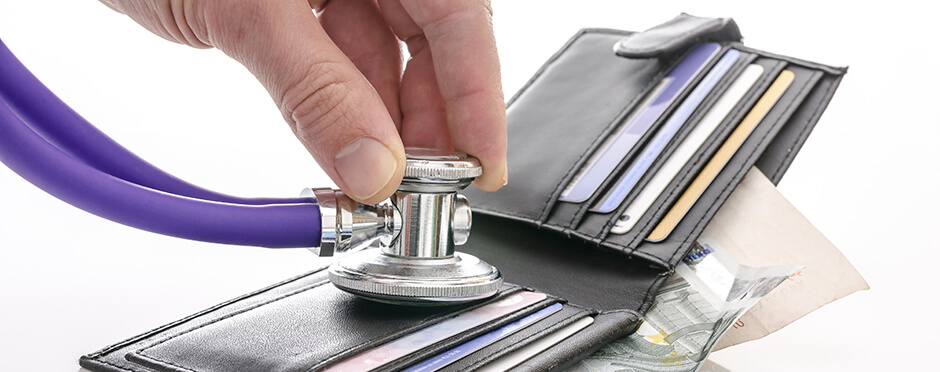
Health and wellness April 3, 2017 By
6 Ways to Get Some Shut-Eye
Article by BlueCross BlueShield of Oklahoma, a First United Bank Partner
Over the years, there have been all kinds of slang to describe sleep. Shut-eye, 40 winks, sawing wood, napping, snoozing, catching some Z’s, hitting the sack.
No matter what you call it, sleep is vital. We need sleep as much as we do oxygen and water. Each of us needs to ask: Am I getting enough quality sleep? Unfortunately, for many of us, the answer is no.
People often cut their sleep short when they’re busy. And many see sleep as a waste of time. It’s as if the hours spent beneath the sheets are interrupting something more important.
But those who don’t get enough sleep are depriving the body of the time it needs to protect mental and physical health. And these habitual short-changers may be inviting a lifetime of troubles.
Why Is Sleep Important?
During sleep, your brain forms new pathways to improve learning and memory. This is true no matter how old you are.
Whether you are learning math, playing the piano, starting a new business or solving problems, sleep is how the body recharges to help us complete the tasks in our lives.
Studies show that not getting enough sleep changes activity in parts of the brain. You may have trouble making decisions, solving problems, controlling emotions and handling change, according to the National Heart, Lung, and Blood Institute (NHLBI).
If you keep missing sleep, you can also raise the risk for some chronic health problems.
How Much Sleep Do We Need?
The amount of sleep needed changes over the course of your life. The National Sleep Foundation recommends that:
- Newborns (0 to 3 months) sleep 14 to 17 hours
- Infants (4 to 11 months) sleep 12 to 15 hours
- Toddlers (1 to 2 years) sleep 11 to 14 hours
- Preschoolers (3 to 5 years) sleep 10 to 13 hours
- School agers (6 to 13 years) sleep 9 to 11 hours
- Teens (14 to 17 years) sleep 8 to 10 hours
- Young adults (18 to 25 years) sleep 7 to 9 hours
- Adults (26 to 64 years) sleep 7 to 9 hours
- Older adults (65 and older) sleep 7 to 8 hours
Do You Have a Sleep Debt?
An estimated 50 million to 70 million American adults have sleep or wakefulness disorders. Research also shows:
- One-third of Americans get fewer than seven hours of sleep a night.
- 12 million to 18 million American adults have sleep apnea (trouble breathing during sleep).
- 70 percent of students are not getting enough sleep on school nights.
- 5,000 to 6,000 fatal automobile crashes each year may be caused by drowsy drivers.
- A lack of sleep and insomnia (unable to sleep) are more prevalent in women.
- Lack of sleep causes billions of dollars in lost productivity annually.
People who fail to get enough sleep day after day can go into “sleep debt.” Imagine taking out a bank loan and finding you are unable to pay it back. After a while, the burden of the debt becomes heavy.
The same is true for sleep. Let’s say you cut short your recommended sleep by two hours a day. After a week, you will have a total of 14 hours of missed sleep.
Missing just two to three hours of sleep for a few days can have the same effects as pulling an all-nighter. It is possible — and recommended — that you make up a sleep debt. But it’s important to do it slowly.
The National Sleep Foundation offers some tips on how to do that. It also has a video library covering topics like how sleep affects brain function, building a better bedroom, insomnia, chronic pain and sleep, and more.
Get Better Rest
A sure sign you didn’t get enough sleep is waking up to the alarm clock and immediately wishing you could spend more time in the sack. Quality sleep is important. Luckily, there are six easy ways to improve your sleep habits to get the rest you need:
- Go to bed and wake up at the same time every day, including weekends.
- Avoid exercise and bright artificial light (TV, computer screens) for about an hour before bedtime.
- Avoid large meals, alcohol and smoking within a couple hours of bedtime.
- Avoid caffeine. The effects may last as long as eight hours.
- Keep your bedroom quiet and dark during sleep.
- Take a hot bath or try to relax before bedtime if you think you may have trouble sleeping.
- This article was re-posted with permission from BlueCross BlueShield of Oklahoma.




